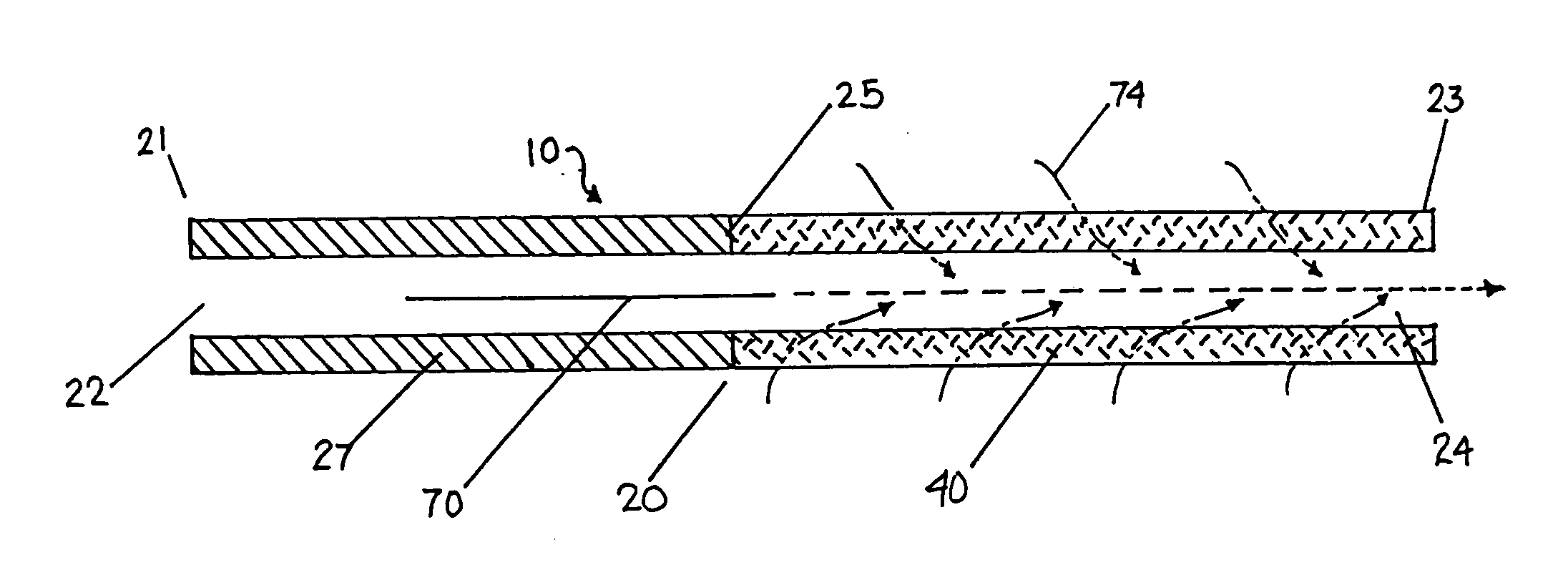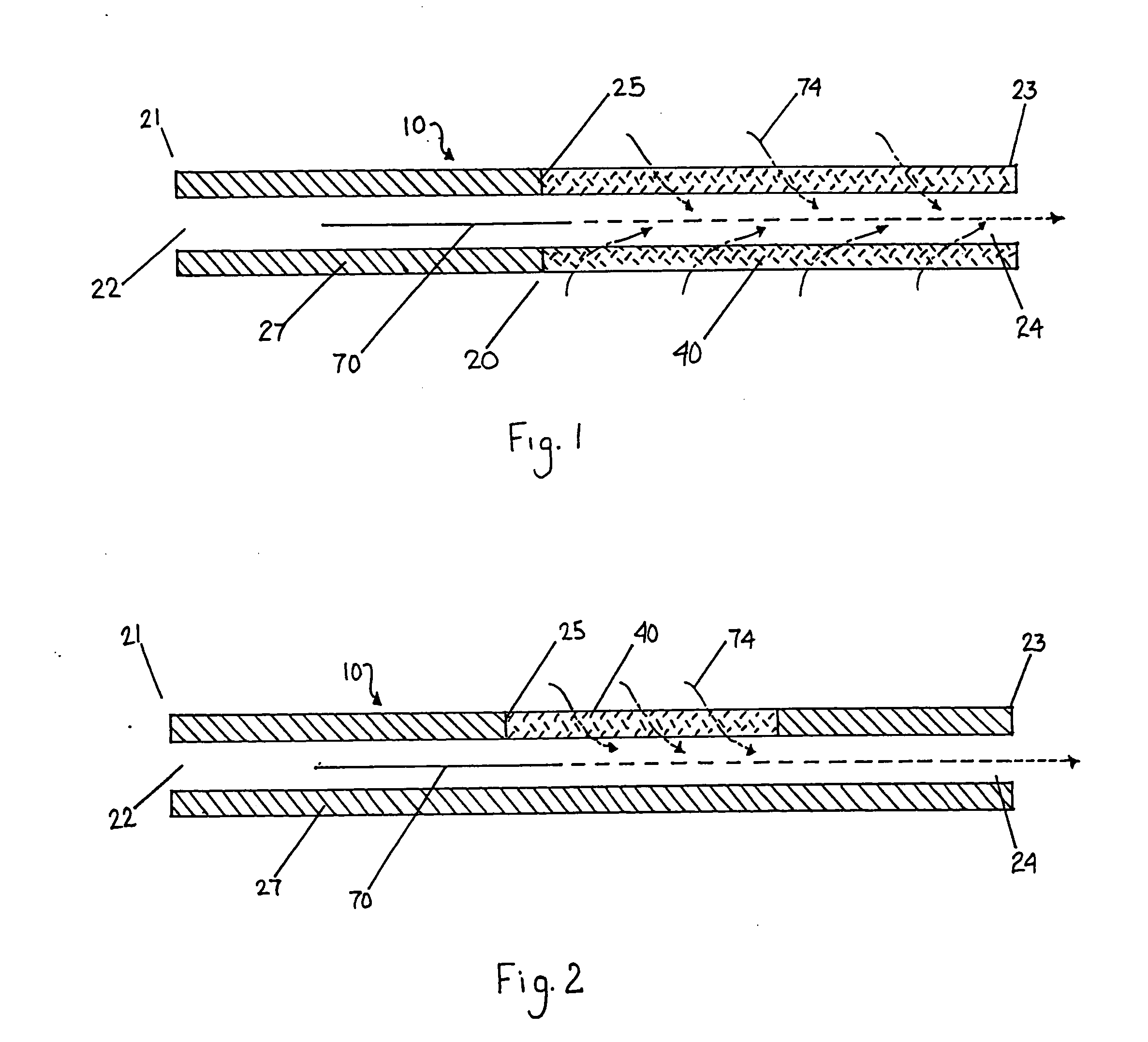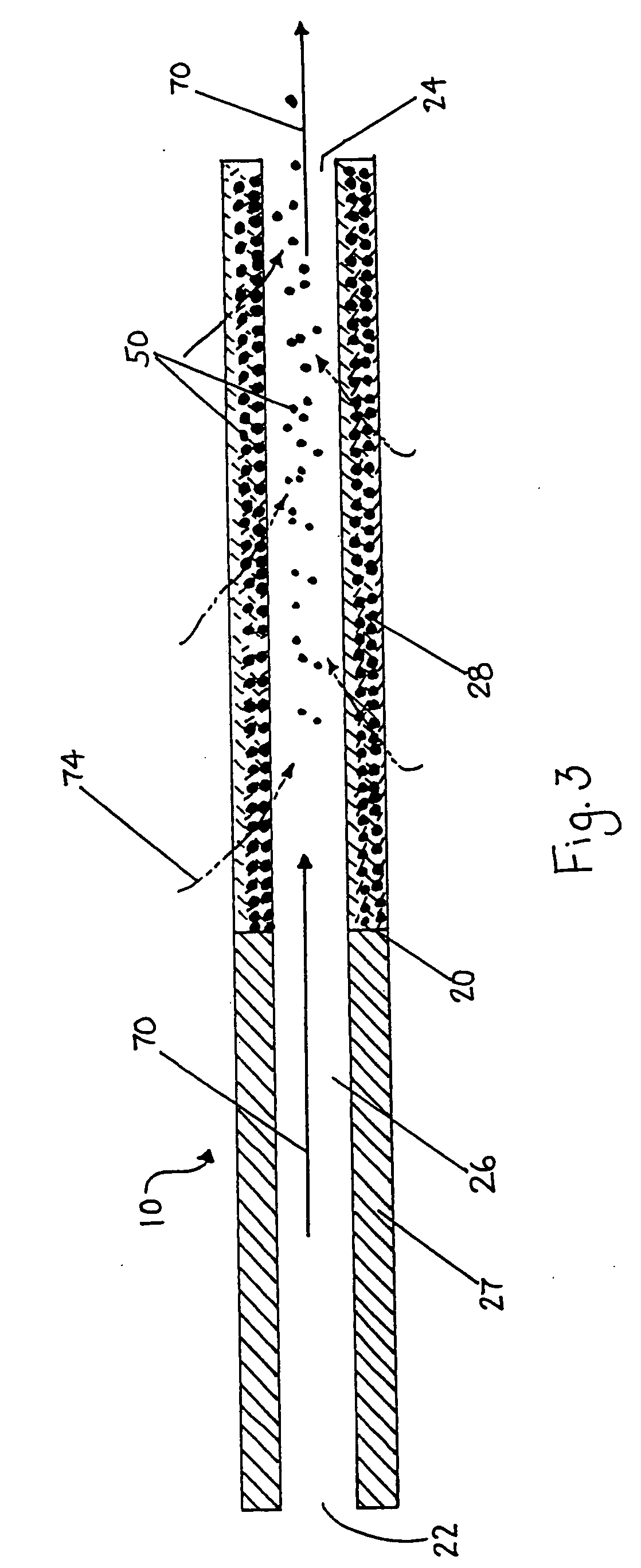Catheter for modification of agent formulation
a catheter and agent technology, applied in the field of catheters for modifying agent formulations, can solve the problems of limited access to treatment sites, difficulty in site-specific drug delivery, and difficulty in delivering specific drugs, and achieve the effects of convenient handling, low volume delivery rate, and convenient delivery of extremely small volumes
- Summary
- Abstract
- Description
- Claims
- Application Information
AI Technical Summary
Benefits of technology
Problems solved by technology
Method used
Image
Examples
example 1
Delivery of Baclofen HCl
[0116] A Baclofen HCl solution in DMSO (335.8 mg / cc) was delivered using a prototype of a catheter of the invention. With reference to the equations described herein, the dilution ratio was calculated, with Co=335.8 mg / cc Baclofen, with K Πo=31.3 μl mils / cm2 hr for the Silastic tubing (Dow Corning Q 4750). The outer diameter of the tubing (OD) was 0.047 in (0.0597 cm), while the inner diameter was inner diameter (ID) was 0.025 in (0.0317 cm). The mean diameter (calculated by taking the log average value due to variations in wall thickness) was 0.0443 cm, with a tubing wall thickness of 11 mils (0.0235 in minus 0.0125 in). The pumping rate was 20 microliters / day (0.083 μl / hr). The length of the elongate body catheter was 5.22 cm.
[0117] Using these values and Equation (2) above, Φo is calculated to be 4.13 μl / hr. Using this value in Equation (3), the estimated flow rate at the exit of the Silasitc tubing (elongate body) should be Fι=0.083 (1+2×4.13 / 0.083)1 / 2=...
PUM
| Property | Measurement | Unit |
|---|---|---|
| pH | aaaaa | aaaaa |
| pH | aaaaa | aaaaa |
| length | aaaaa | aaaaa |
Abstract
Description
Claims
Application Information
 Login to View More
Login to View More - R&D
- Intellectual Property
- Life Sciences
- Materials
- Tech Scout
- Unparalleled Data Quality
- Higher Quality Content
- 60% Fewer Hallucinations
Browse by: Latest US Patents, China's latest patents, Technical Efficacy Thesaurus, Application Domain, Technology Topic, Popular Technical Reports.
© 2025 PatSnap. All rights reserved.Legal|Privacy policy|Modern Slavery Act Transparency Statement|Sitemap|About US| Contact US: help@patsnap.com



